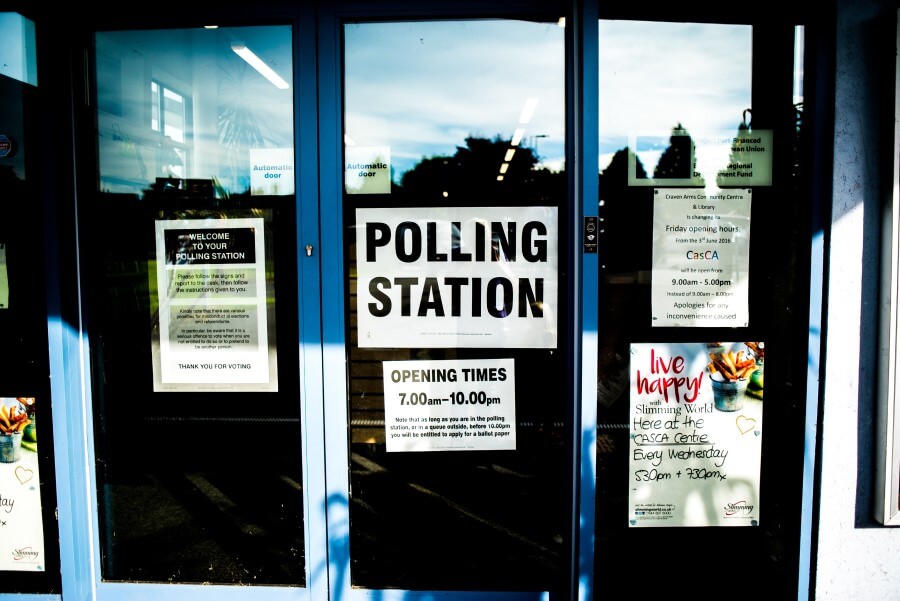 With the upcoming local elections in England, Dr Tasos Kitsos looks at the influence of distributive politics and the importance of local government to catalyse change where we live.
With the upcoming local elections in England, Dr Tasos Kitsos looks at the influence of distributive politics and the importance of local government to catalyse change where we live.
With the local elections coming up in (some of) England, and our recent publication (with Dr Antonios Proestakis) on distributive politics in Greece, I wanted to put down a few thoughts on the importance, status and opportunities for local government and governance.
The importance of local government
The COVID-19 pandemic highlights more than ever the importance of decentralised governance. Local authorities have much better knowledge of the particular conditions for people, societies and economies in local areas. It is not by chance that they have been instrumental in the country’s response to the pandemic and the effective distribution of economic assistance despite being cash and power strapped. Local government has shown there is still latent capacity, institutional memory, willingness and readiness to step up to the challenge of socio-economic betterment beyond fixing potholes and collecting rubbish. See for example the partnership working behind the West Midlands Weekly Economic Impact Monitor leveraging local intelligence to inform the recovery of the region.
Life in captivity
This capacity and willingness to contribute is normally stifled by multi-scale politics. Politics that create confusing administrative layers and boundaries (see this very useful blog by Dr Charlotte Hoole) and that centralise resources and decision-making at inefficient geographical levels. This centralisation renders the distribution of resources to local government a fertile ground for the political manipulation of funding allocations.
In a study on Greece, Dr Antonios Proestakis and I (2021) look at the role of political alignment between mayors and central government in the allocation of local government grants. Between 2003 and 2010, we find that when politically aligned, local authorities receive an extra €1.3m in government grants before national elections and an extra €0.6m in grants before local elections. This, coupled with the fact that more than 60% of local authority financing comes from intergovernmental grants suggests that the capacity of local authorities significantly depends on the politics between different government levels.
Now you would be excused to think this is limited to countries that rank low in the World Governance Indicators (Kaufmann et al., 2013) but this is not true. Electoral interference in the distribution of public resources among government levels is widespread both in terms of where it happens (Luca, 2018, Solé-Ollé and Sorribas-Navarro, 2008, Livert and Gainza, 2018, Bracco et al., 2015, Rodríguez-Pose et al., 2016b) and in terms of how (Dalle Nogare and Kauder, 2017, Carozzi and Repetto, 2016, Rodríguez-Pose et al., 2016a, Pinar et al., 2021). More worryingly, these influences appear in the UK, with the Towns Fund being the most recent vehicle of pork barrelling (Hanretty, 2021).

A missed opportunity
This dependency of centrally allocated funds is a missed opportunity across three aspects:
- It is a missed opportunity for meaningful engagement. Voter turnover shows that people are less concerned with the outcome of local elections and this reflects the general (mis-)understanding of how much of a difference local government can make. This is everyone’s responsibility from the central government that holds the resources and decision-making powers (see LIPSIT’s Levelling-up report), to local governments for not communicating adequately their impact and contribution to our every day lives. Of course, responsibility also lies with us, the rest of the stakeholders for not being more vocal on decentralisation.
- It is a missed opportunity because it is ineffective. By not capitalising on local knowledge, latent capacity and capability we are not making the best use of resources to solve the great challenges ahead of us. The climate emergency and the recovery from the pandemic are two interlinked stress-tests for our society and require synchronised responses from the neighbourhood to the global level. These efforts cannot afford to waste a resource as significant as local governance.
- It is also a missed opportunity for entrepreneurial thinking. Being dependent on government grants and decision-making means that creativity and entrepreneurial thinking in tackling challenges, service delivery and raising funds is stifled. When these skills at the local level are not used, they gradually depreciate and become obsolete. It is becoming increasingly pressing to unlock this potential and capitalise on these capabilities.
What can we do?
Our responsibility on May 6 is to vote. To show that we care and place importance on local governance to catalyse change. Elected officials should take this as a mandate to ask for more responsibilities and powers and central governments should really see this as optimising efficiency rather than political bargaining.
This blog has been re-posted from Medium.
References
- BRACCO, E., LOCKWOOD, B., PORCELLI, F. & REDOANO, M. 2015. Intergovernmental grants as signals and the alignment effect: Theory and evidence. Journal of Public Economics, 123, 78-91.
- CAROZZI, F. & REPETTO, L. 2016. Sending the pork home: Birth town bias in transfers to Italian municipalities. Journal of Public Economics, 134, 42-52.
- DALLE NOGARE, C. & KAUDER, B. 2017. Term limits for mayors and intergovernmental grants: Evidence from Italian cities. Regional Science and Urban Economics, 64, 1-11.
- HANRETTY, C. 2021. The Pork Barrel Politics of the Towns Fund. The Political Quarterly, 92, 7-13.
- KAUFMANN, D., KRAAY, A. & MASTRUZZI, M. 2013. World governance indicators. The World Bank.
- KITSOS, A. & PROESTAKIS, A. 2021. Mediating distributive politics: political alignment and electoral business cycle effects on municipality financing in Greece. The Annals of Regional Science.
- LIVERT, F. & GAINZA, X. 2018. Distributive politics and spatial equity: the allocation of public investment in Chile. Regional Studies, 52, 403-415.
- LUCA, D. Picking Winners at the Ballot Box: Votes and Local Economic Growth in Turkey. Economic Research Forum Working Papers, 2018.
- PINAR, M., KARAHASAN, B. C. & DENIZ, P. 2021. Electoral outcomes, power outages and firm performance. Regional Studies, 55, 723-734.
- RODRÍGUEZ-POSE, A., PSYCHARIS, Y. & TSELIOS, V. 2016a. Liberals, Socialists, and pork-barrel politics in Greece. Environment and Planning A, 48, 1473-1492.
- RODRÍGUEZ-POSE, A., PSYCHARIS, Y. & TSELIOS, V. 2016b. Politics and Investment: Examining the Territorial Allocation of Public Investment in Greece. Regional Studies, 50, 1097-1112.
- SOLÉ-OLLÉ, A. & SORRIBAS-NAVARRO, P. 2008. The effects of partisan alignment on the allocation of intergovernmental transfers. Differences-in-differences estimates for Spain. Journal of Public Economics, 92, 2302-2319.
This blog was written by Dr Tasos Kitsos, Research Fellow, City-REDI / WM REDI, University of Birmingham.
Disclaimer:
The views expressed in this analysis post are those of the authors and not necessarily those of City-REDI / WM REDI or the University of Birmingham
